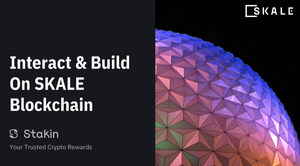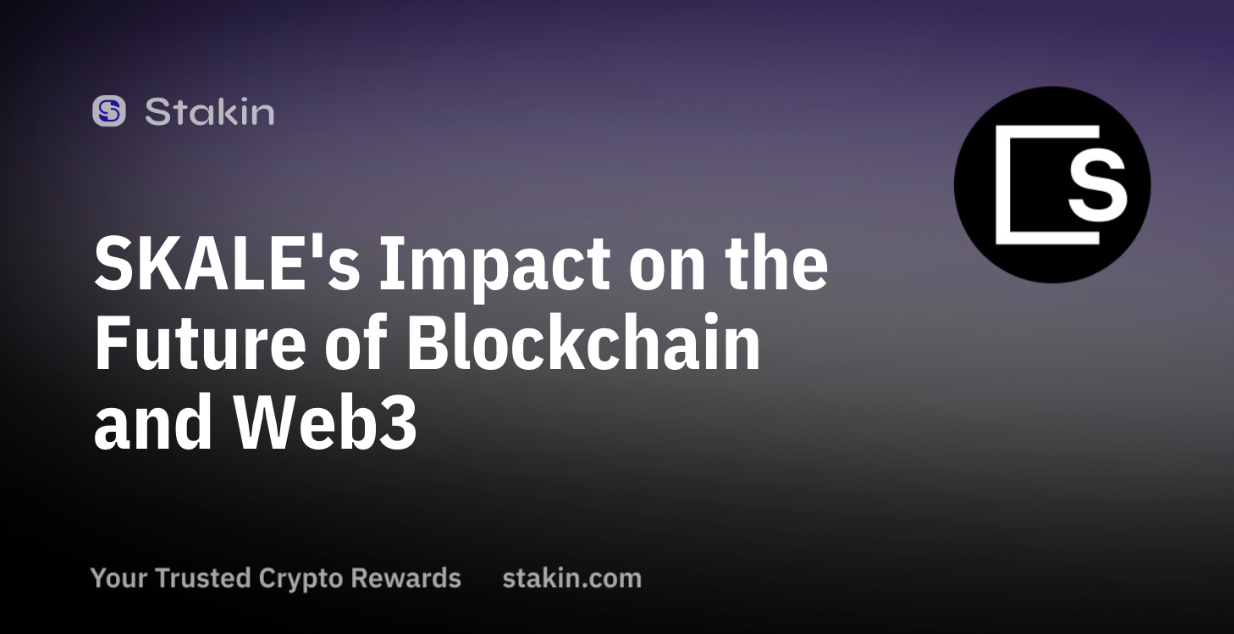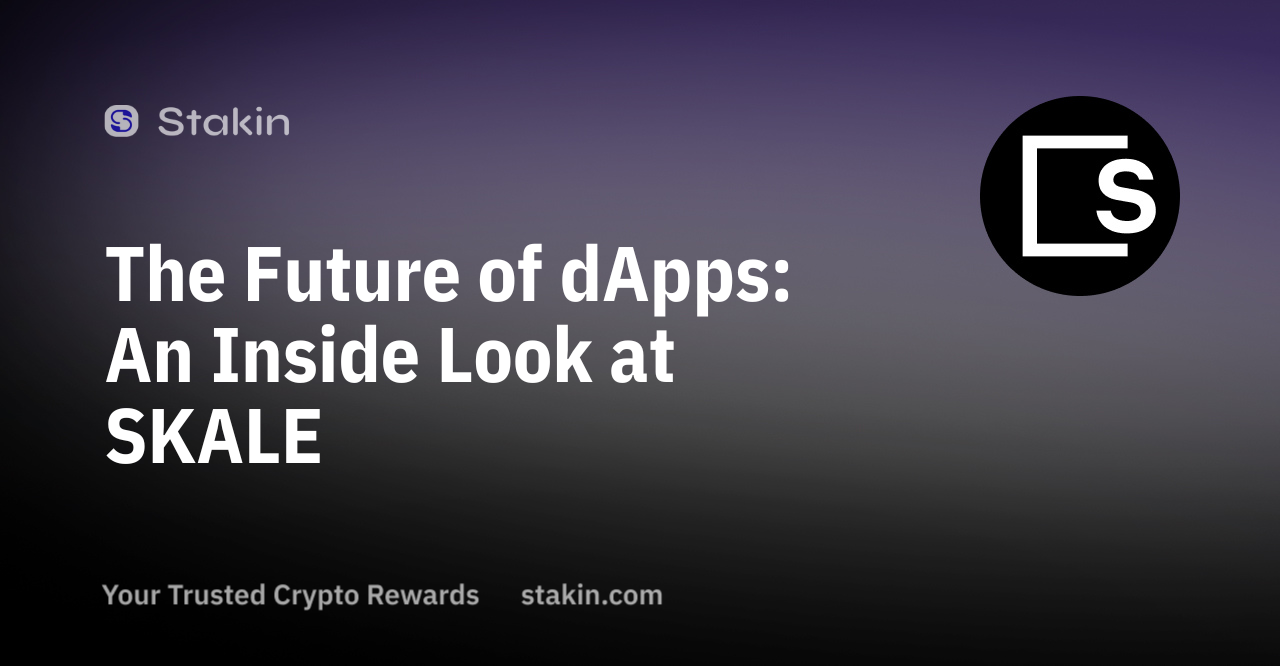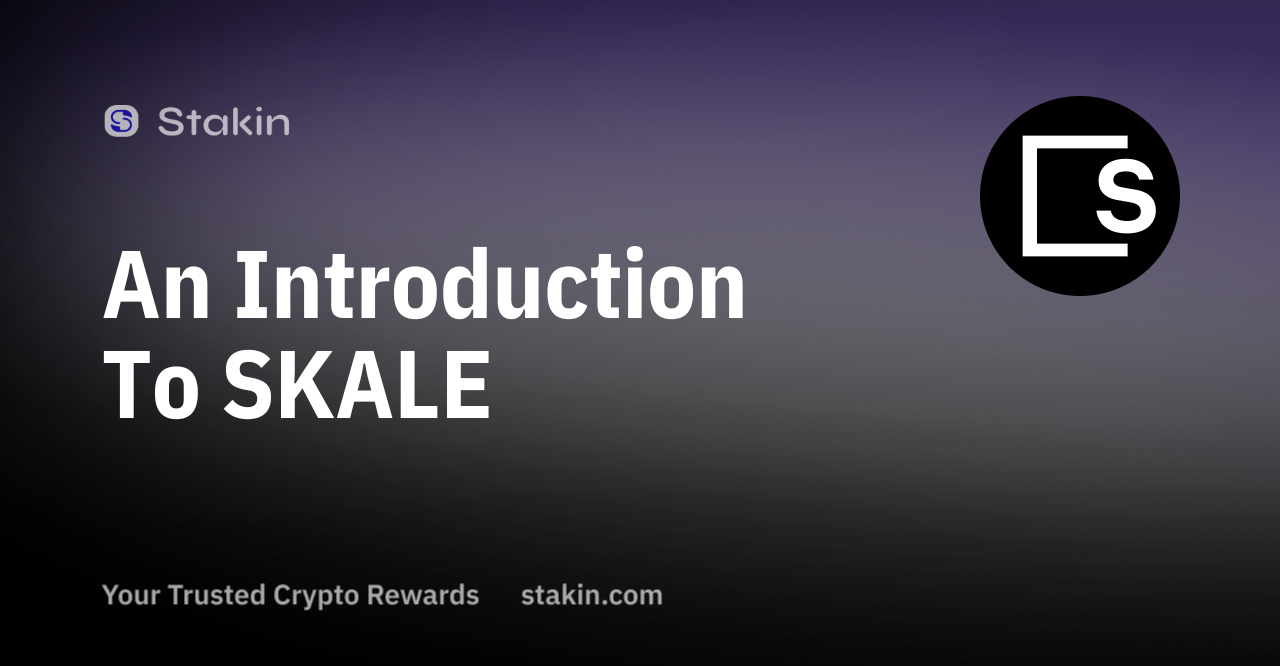Hi Readers👩💻,
In today’s article, we’re looking at the different tools to build and interact on the SKALE Blockchain. But before we get into that, here’s a quick recap of the protocol for those of you who aren’t familiar with SKALE.
What is the SKALE Blockchain?
The SKALE Network is an “elastic” blockchain network designed to be interoperable with Ethereum. The protocol aims to resolve the technical scalability, user experience, and cost issues associated with decentralized networks. Additionally, SKALE is designed to bring an application-specific architecture to developers, which improves configurability and modularity.
SKALE is focussed on solving the limitations that blockchain technology currently has with speed and capacity. Moreover, SKALE works towards improving the user experience, making the platform and its applications easy to use for the mainstream public. By using SKALE, developers can quickly provision highly configurable side chains that are compatible with Ethereum, process smart contracts and support up to 2,000 TPS per chain. On SKALE, decentralized applications can serve up to hundreds of millions of users, seamlessly and securely. For more information about SKALE, check our introduction article or watch the video below.
🛠 SKALE Blockchain Tools To Interact And Build
Blockchain API Connectors
A blockchain API connector is an interface that communicates with a blockchain node or a client network directly or through another service. There are two different Blockchain API connectors for SKALE: Alethio (part of Codefi) and Infura. As Alethio recently announced that they will abandon the brand name but keep services available as part of Codefi, the API is still up and running. The Alethio API allows developers, investors, enthusiasts, and businesses to request observe, and organize on-chain data in a consistent and actionable way.
Infura API is a provider of tools and infrastructure that allows developers to easily take their blockchain application from testing to scaled deployment through a reliable, simple access to Ethereum and IPFS. By using Infura you can solve blockchain pain points such as the need for peer-to-peer networks which can require a long initialization time (it can take hours to sync nodes and way more bandwidth and storage than you initially had planned). With Infura, no syncing is required, no complex set-ups. Just your decentralized app, live and functioning.
Storage
There are two parties who are working on decentralized storage for the SKALE Blockchain, Arweave (familiar from the SOLAR Bridge for Solana) and Guer.
Arweave is a new, decentralized type of storage platform that backs data with sustainable and perpetual endowments, which allows users and developers to truly store data forever. Which is the very first possible time. In a nutshell, the platform works as a collectively owned hard drive that never forgets and allows us to remember and preserve valuable information, apps and history indefinitely. As the platform itself says: “By preserving history, it prevents others from rewriting it”.
Guer builds core protocols to enable decentralized and trustless remote computing. To achieve that the protocol uses next-gen session layer security, smart contract access management and decentralized storage integrations. Next-gen session layer security makes it possible to connect storage, virtualization and end-users without third parties or costly certificates. Additionally, customers manage access directly, through their dashboard or their app with the Guer API which helps them maintain access to management through Smart Contracts. Additionally, customer data is governed by a unique, single smart contract which manages all interactions of that data.
Data Explorers
Data explorers or blockchain explorers are a piece of software that use an API and blockchain node to draw various data from a blockchain and then uses a database to arrange the searched data and to present the data to the user in a searchable format. There are currently three data explorers for the SKALE blockchain.
The Graph is an indexing protocol for querying networks like Ethereum and IPFS. Anyone can build and publish on public IPA’s, called subgraphs, which makes the data easily accessible. The second data explorer is Covalent, which is mostly focussed on data powering the DeFi economy and provides a unified API to bring full transparency and visibility to assets across all blockchain networks.
Bitquery is one of the more well-known data explorers of the blockchain ecosystem. The platform refers to itself as the blockchain data solution. And offers three different products, Coinpath, Digital Assets API and decentralized exchange (DEX).
- Coinpath is a set of blockchain money tracing APIs based on a sophisticated mathematical algorithm that can perform complex calculations between blockchain addresses to show the money flow.
- Digital Assets API is a provider of indexed information for all major cryptocurrencies, coins, and tokens.
- DEX API provides real-time trades for multiple DEX protocols across different blockchains.
Oracles
Oracles are services that send and verify real-world data and submit the information to smart contracts, triggering state changes on the blockchains. For the SKALE blockchain, there are two oracles: Chainlink and Razor.
Chainlink is a well-known company behind many oracle and smart contract solutions across the blockchain ecosystem. See the video below for a short introduction.
Razor or Razor Network, connects smart contracts with data in a fast and secure way. The Razor network consists of validators who lock their assets in a “stake” and provide data to the network. The core of Razor Network is a set of smart contracts, that can run on any Ethereum compatible blockchain. Razor relies on the underlying blockchain for providing certain properties such as censorship resistance, security from network partition attacks, etc.
Developer Tools
There are a few developer tools on the SKALE blockchain that support the easy and fast creation of DApps and other blockchain aspects. The first one is Remix IDE, an open-source web and desktop application that fosters a fast development cycle and is used for the entire journey of contract development. It can also be used as a learning platform for Ethereum. Remix IDE is part of the Remix Project which is a platform for development tools that use a plugin architecture. On the SKALE blockchain, Remix is used for smart contract implementation together with Metamask.
Then there is also the Web3Js which for SKALE is used as the node developer tool. It is a collection of libraries that allow you to interact with a local or remote Ethereum node using HTTP, IPC or WebSocket.js as well as providing an API reference documentation with examples
Truffle is a popular way to deploy your smart contracts onto Ethereum, and can also be used to deploy your smart contracts onto SKALE. It is possible to update your truffle configuration file (truffle.js) with a configuration to deploy your smart contracts onto SKALE.
Wallets
There are five wallets available for SKALE:
- Portis is a non-custodial blockchain wallet known for its user-friendliness, elegance and the simplicity of the design. It offers a wide range of ERC20 assets for which you can use the wallet.
- Torus is created by Torus Labs and is a one-click login function for Web 3.0 applications and platforms. The wallet describes itself as: “Mainstream users’ gateway to the decentralized ecosystem via Google, Facebook and other OAuth logins.”.
- Fortmatic is a wallet solution that allows you to integrate your app with Ethereum (and now SKALE) regardless of whether you already have a DApp integrated with web3 or are starting from scratch. It helps to provide a smooth and delightful experience to developers and their users.
- Burner Wallet or Burner Wallet Collective is an instant web wallet used to send small amounts of digital assets quickly, through a simple user experience.
- Bitski lets you build user-friendly and cross-platform Ethereum apps. With Bitski you can build a DApp or game that feels just as easy to use as a standard app, and it allows you to easily access all things in the blockchain world.
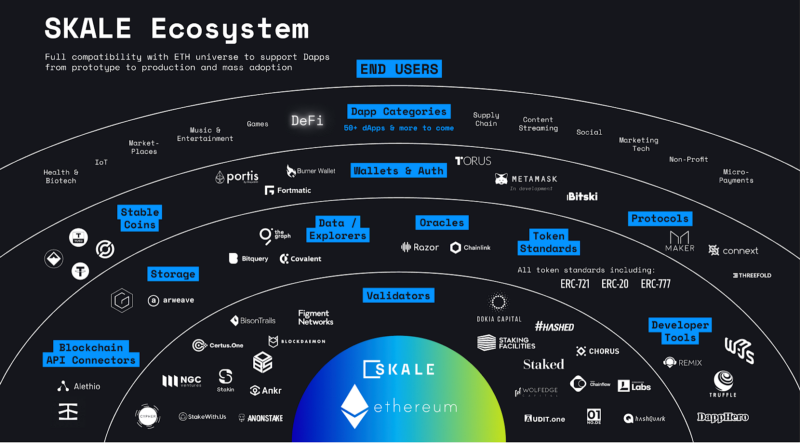
DISCLAIMER: This is not financial advice. Staking, delegation, and cryptocurrencies involve a high degree of risk, and there is always the possibility of loss, including the failure of all staked digital assets. Additionally, delegators are at risk of slashing in case of security or liveness faults on some protocols. We advise you to do your due diligence before choosing a validator.
